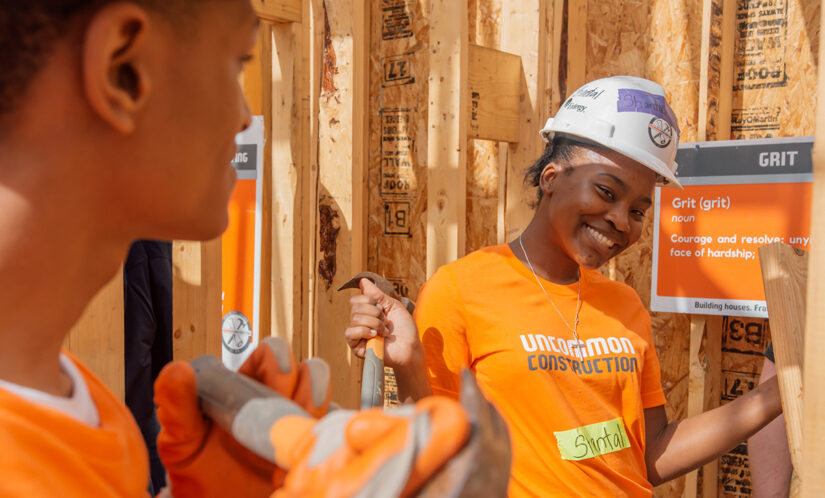
SIGN UP HERE For The 74’s daily newsletter. Donate here Support the independent journalism of The 74.
The students in the classroom today are tomorrow’s workforce leaders, but even before the pandemic, learners didn’t feel their high schools were adequately prepared for long-term career choices. Only 52% of students feel ready for the world of work. The pandemic of the past two years has made the path from classroom to career even more difficult. Last year, her estimated 1.1 million enrolled K-12 students were out of school, and 24% of her students said they were less likely to pursue education after high school. This detachment and disconnection between school and work is not an abstraction. It’s a problem with very real consequences.
That’s why American Student Assistance partnered with several other leading charities to help create the Catalyze Challenge. This is a funding initiative designed to inspire innovative learning models that give students the real-world experience they need to make informed decisions about career exposure, exploration, and future. provide the experience of .
Recently, the Catalyze Challenge announced 25 new grant winners across 18 states. All of them focus on bold ideas that will tangibly change what education looks like in our communities now and in the years to come. From equipping students with the skills to identify and address neighborhood challenges, to creating a program of practical training her, the winner will bridge the gap between the classroom and career, leading to economic opportunities for young people. inspires the journey of This year’s winner will receive up to $500,000, surpassing her $5 million in funding this year, and to date he will be paid her $10 million in 33 states.
This year’s Catalyze Challenge winners focused on a variety of themes, but were all selected with the goal of building career skills while supporting the unique needs of students. One of her new grant recipients, the National Indian Education Association’s “Building Career Pathways for Indigenous Students,” will increase opportunities for citizens of her three Indigenous communities in Wisconsin, and increase the number of people in these communities. It aims to address the housing crisis. Rural students have the opportunity to learn the skills needed for careers in the construction industry and earn industry-recognized certifications while still in high school.
A similar model in New Orleans, unCommon Construction, offers apprenticeships to high school students of color to complete construction projects while earning hourly wages and school credit, gaining important job skills and additional education. has won a scholarship to pursue the opportunity of With the support of the Catalyze Challenge, UnCommon Construction plans to add new subsidiaries to its New Orleans-based campus and satellite locations around the country, and to participate in projects with increasingly demanding apprenticeships. We are expanding to a 3-tier model that allows you to increase your skill level. Complex projects such as building client home repairs and creative designs.
Another winner, the Ella Baker Institute, is a Brooklyn-based organization focused on youth leadership and community well-being. It positions young people to identify challenges facing New York communities, from gentrification to incarceration. Last year, the Institute launched the Youth Leadership Co-operative to help young people build the relationships they need to take responsibility for their communities and address the issues most relevant to their lives. By developing local leaders, winners of her Catalyze Challenge, like the Ella Baker Institute, ensure that change within their communities is led by community members.
The Broadstreet Institute offers virtual hands-on data internships to help women of color build their technical and leadership skills. By connecting interns with nonprofits that need data to bring in donations, grants, and funding, the institute helps young women of color, a field historically dominated by men, supported by data. The Institute believes this approach helps interns build technical skills, make connections with key professionals, and educate people of color in data science and leadership while contributing to nonprofits doing important work in their communities. We believe it helps increase the female representation of the species.
Bayada provides meaningful careers for young people while addressing critical health worker shortages to meet the country’s current and future needs. Students in Pennsylvania, New Jersey and Hawaii can enroll in Bayada’s Advance to LPN program and her ABA Academy. This program provides a supportive and rapid pathway for entry-level employees to obtain the necessary qualifications to become a Registered Nurse or Behavioral Technician without undertaking a student. debt. Coaches and mentors support students in caring for clients at home.
OneInFive, designed by a leader with bipolar disorder, allows up to eight young people with mental health challenges in Indianapolis to gain experience as paid peer supporters in their school district. They will share their experiences with educators and learn how to solve real-time challenges while working towards certification as Peer Mental Health Recovery Specialists and finding affordable mental health care most affected by her lack of care. Improve her 20% youth performance.
Families want more options available to their children after high school, and Gen Z students want more exposure to work experience and professional guidance. In a world hungry for change, there’s never been a better time to rethink the education-to-career pathway system. That’s what the Catalize Challenge is all about.
Get stories like this delivered straight to your inbox. Sign up for The 74 newsletter
